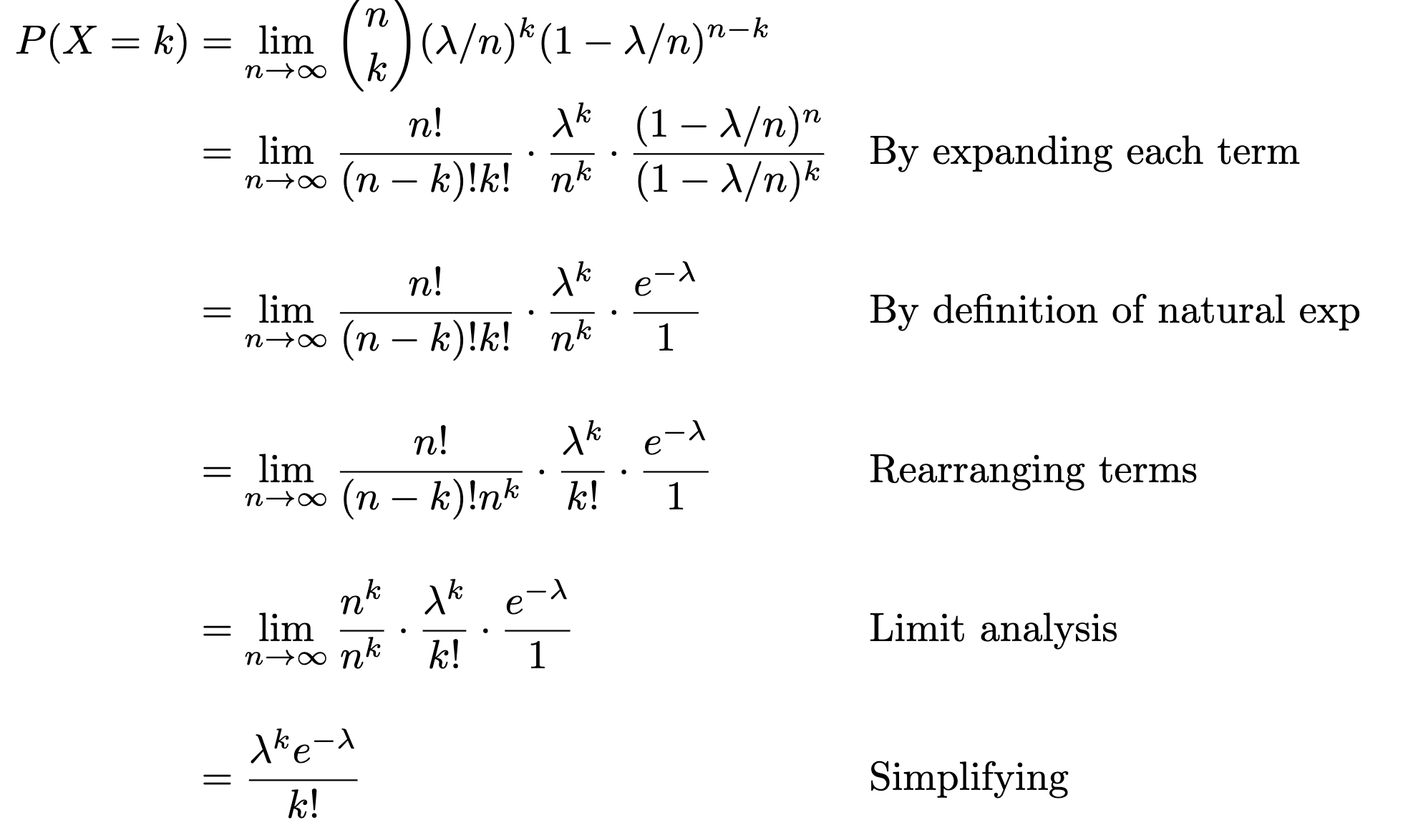Let’s say we want to know what is the chance of having an event occurring \(k\) times in a unit time, on average, this event happens at a rate of \(\lambda\) per unit time.
“What’s the probability that there are \(k\) earthquakes in the 1 year if there’s on average \(2\) earthquakes in 1 year?”
where:
- events have to be independent
- probability of sucess in each trial doesn’t vary
constituents
- $λ$—count of events per time
- \(X \sim Poi(\lambda)\)
requirements
the probability mass function:
\begin{equation} P(X=k) = e^{-\lambda} \frac{\lambda^{k}}{k!} \end{equation}
additional information
properties of poisson distribution
- expected value: \(\lambda\)
- variance: \(\lambda\)
derivation
We divide the event into infinitely small buckets and plug into a binomial distribution, to formulate the question:
“what’s the probability of large \(n\) number samples getting \(k\) events with probability of \(\frac{\lambda}{n}\) of events”
\begin{equation} P(X=k) = \lim_{n \to \infty} {n \choose k} \qty(\frac{\lambda}{n})^{k}\qty(1- \frac{\lambda}{n})^{n-k} \end{equation}
and then do algebra.

And because of this, when you have a large \(n\) for your binomial distribution, you can just use a poisson distribution, where \(\lambda = np\).
adding poisson distribution
For independent \(A, B\)
\begin{equation} A+B \sim Poi(\lambda_{A}+ \lambda_{B}) \end{equation}
MLE for poisson distribution
\begin{equation} \lambda = \frac{1}{n} \sum_{i=1}^{n} x_{i} \end{equation}
yes, that’s just the sample mean